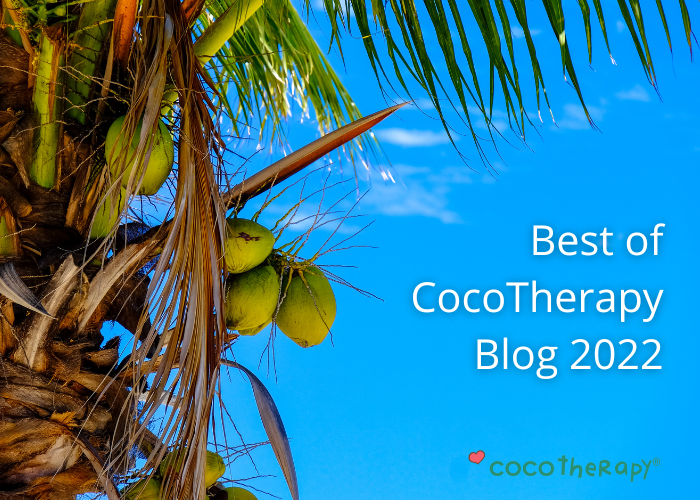At the start of a new year, many of us are looking for ways to get our health back on track. Whether it's committing to an exercise routine, eating better, or cutting back on unhealthy habits, we're all striving to become our best selves.
But did you know there's a centuries-old practice that could help improve your oral health and overall wellness? And the good news is that it's easy to do and requires minimal effort. We're talking about oil pulling.
In this post, we'll take a look at the benefits of oil pulling and how it can help you have a healthier 2023. From improved oral health to detoxifying your body, oil pulling is a simple and natural way to give yourself an overall wellness boost. Keep reading to discover what oil pulling is, the benefits it offers, and our top tips for getting started.

What Is Oil Pulling?
Oil pulling is an ancient Ayurvedic practice that has been used for thousands of years to promote oral health and detoxification. It involves swishing a tablespoon of oil in your mouth for up to 20 minutes, then spitting it out. The type of oil used can vary but is usually either coconut, sesame, or sunflower seed oil.
The oil binds to bacteria, toxins, and other impurities, pulling them away from the teeth and gums. Doing this regularly helps reduce plaque buildup, while also detoxifying the body and promoting overall health.
Although oil pulling dates back to ancient times – long before modern dentistry – it's still a popular practice today and has been gaining traction in the Western world. In the next section, we'll look at some of the key benefits of this simple yet powerful practice.
What Are the Benefits of Oil Pulling?
Since oil pulling removes impurities from the mouth, it's highly beneficial for oral health. Studies have shown that regular oil pulling can help reduce harmful bacteria such as Streptococcus mutans, which is a major cause of tooth decay. Additionally, oil pulling can help prevent gum inflammation (gingivitis), reduce the severity of existing gum issues, and even combat bad breath.
The secret to these benefits lies in the fact that oil pulling removes bacteria from the mouth and prevents it from sticking to the teeth. This, in turn, protects against the buildup of plaque and tartar. Plaque is a thin film of bacteria that sticks to the surfaces of teeth, while tartar is a hardened form of plaque. Both can lead to bad breath, gum disease, tooth decay, and other dental issues if left unchecked.
But oil pulling doesn't just benefit oral health. It also helps promote overall wellness by detoxifying the body. The practice helps flush out impurities and toxins, which can reduce inflammation throughout the body and help with health issues such as headaches, allergies, digestive problems, and much more.
In an interview for OraWellness, Dr. Bruce Fife, C.N., N.D., author of Oil Pulling Therapy: Detoxifying and Healing the Body Through Oral Cleansing, explains how oil pulling can help with a myriad of health problems that affect the entire body:
"This is really amazing because you think oil pulling only affects the mouth. But it affects the entire body. So, conditions even like controlling blood sugar for diabetics, arthritis, fibromyalgia, chronic fatigue, headaches, allergies, asthma, digestive problems, skin problems, insomnia, low energy, muscle aches, back pain. The list really can go on and on!"
How to Get Started with Oil Pulling
Ready to give oil pulling a try and reap all the benefits it has to offer? Here are our top tips for getting started:
- Use high-quality oil. For us, there is no better oil to pull with than with virgin coconut oil. Make sure you use an organic, cold-pressed oil with no additives or unnecessary ingredients. CocoTherapy Organic Virgin Coconut Oil is the purest, therapeutic-grade coconut oil for pulling. It tastes great and it's packed full of lauric acid, which is known for its antiviral, antibacterial, antifungal, and antimicrobial properties.
- Start off small. Begin with 5-10 minutes and gradually work up to 15-20 minutes per session. This will give your mouth and body time to adjust to the practice.
- Don't swallow. Swallowing oil that has been in contact with bacteria can lead to digestive problems, so be sure to spit it out once you're done swishing. It's best to spit the oil into a tissue or paper towel then throw it in the garbage to avoid clogging your drains.
- Do it first thing in the morning. It's a good idea to do oil pulling first thing in the morning to remove toxins from the mouth and body that have built up overnight. But if you can't do it in the morning, any time throughout the day is fine.
- Brush your teeth afterwards. Brushing your teeth after oil pulling will help remove any residue and leave your mouth feeling fresh and clean.
- Do it consistently. Like many things in life, consistency is key when it comes to oil pulling. Try to make it a part of your daily routine and you'll soon start to see the benefits!
Wrapping Up
We hope you found this post useful and that you're now ready to give oil pulling a try! The practice may seem strange at first, but it's actually incredibly simple. And the benefits can be tremendous – both for your oral health and overall wellness. So, why not give it a shot? You just might be pleasantly surprised by the results. Let us know how it goes, and happy oil pulling!



